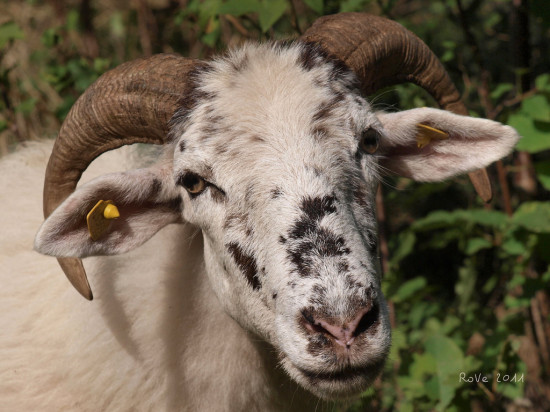The Difference Between Wether, Weather, and Whether

You look at the page and see three words: weather, whether and wether. Although none of these three words is spelled the same, they all sound the same when you say them. They’re classed as homonyms. They have the same pronunciation but different meanings. It’s easy to confuse them, and it’s easy to write one word when you really want to use another (this is more common than you think in English such as with on to and onto, and it can happen even with words that aren’t homonyms like further and farther. How can you tell the difference?
Wether: something you never knew about sheep
First, “wether” is hardly ever used, so you can almost forget about it, but it’s still good to know its meaning. Yes, some people might write it by accident instead of “whether” or even “weather” but it means something completely different than both those words. Actually, a wether is a male sheep or goat that’s had a particularly sensitive operation in the groin area we won’t explain in detail here. It’s only farmers and animal experts who usually need to know and use this word.
Weather: just look out the window
People everywhere love to complain about the weather no matter if it’s the rain, the wind, the sun, or a combination of all of these. Weather is the state of the natural environment in a place at a particular time. Cold weather comes with winter, and hot or warm weather arrives in summer.
Of course, the northern hemisphere has winter at the same time that the south has summer. This means that different seasons actually occur at the same time in different places, not just different weather. This is where weather becomes a little confusing, but you don’t need to worry about this. Just understand what the word means. When it starts with “we,” it’s talking about the natural conditions that “we” experience.
Whether: to be or not to be
On the other hand, “whether” has absolutely nothing to do with sheep or how it is outside. This word is normally used as a conjunction. “And” is a conjunction. So is “or.” Consider this sentence:
“Whether we go to the moon or not, we will think it’s beautiful.”
It’s almost the same as saying:
“If we go to the moon, or if we stay on Earth, we will think the moon is beautiful.”
So “whether” is very much like “if.” And you can see that you have two choices. One is fabulous: you can visit the moon. This means you’re either an astronaut or a billionaire with your own private space vehicle. If that’s so, you can stop reading this right now and do all the important things you have on your schedule today. The second choice is a lot duller: to stay home. However, both choices allow you to appreciate the lunar beauty, so we have two happy endings.
A variation of this occurs in the following sentence:
“I don’t know whether I can pass astronaut training school.”
There is just one situation stated here: to pass. You can either pass or fail, so you have two choices, but the “pass” option is the only one stated. In the first sentence, you can either go or not go, and that’s two choices as well, but both are clearly stated.
And if you want to pass astronaut school, we recommend a lot more advanced math and science in addition to English. You also need to be athletic, healthy, smart, dedicated, lucky… But anything’s possible.
Language keeps changing – whether you like it or not
“Whether” also used to be a pronoun that meant the same as “which” or “whichever.” For example:
“Whichever you buy, the Rolls-Royce or the Cadillac, you’ll have a great car” can also be stated “”Whether you buy the Rolls-Royce or the Cadillac, you’ll have a great car.”
Now, these are not personal pronouns like “I” or “you.” There are quite a few types of pronouns, but they all have this in common: they replace nouns or refer to nouns. So in the sentence above, “whichever” refers to “Cadillac” and “Rolls-Royce.” Since “whether” is not really used as a pronoun these days, you don’t need to remember this definition. Just think “if” any time you see “whether,” and you’ll be on the right track.
Whatever the weather you’ll know whether you’re right
Knowing what the weather will do next isn’t easy, but knowing whether you should use one homonym or another is just a little memory game. As for the sheep, most people wouldn’t know what you were talking about anyway, so just call them ‘sheep’ and you’ll be doing just fine.
(Photo courtesy of Roberto Verzo)


Okay, I thought “wether” was a misspelling. I had no idea that it was actually a word. I guess I improve my vocabulary a bit today, although I’m not sure when I will ever use that word in real life.
That’s a bit strange about the word wether. I thought it was a misspelling as well. I guess you can learn something new every day.
While I appreciate you including wether in this list, I can tell you as the owner of sheep that we hardly ever use this word. It may be fun to know, but you won’t ever use it in your life.
Ya, not used much any more however, it was used much more 50 years ago. I always thought it was pronounced: wither
Informative and entertaining to read. I Appreciate the slight humor as it lets one smile without having to feel like the a dimwit….😉
Great and simple explanation thanks
How ridiculous!!!! WHY not explain to the public that a wether is a casterated Male sheep or goat , it is such a common word amongst the meat, livestock and wool industries